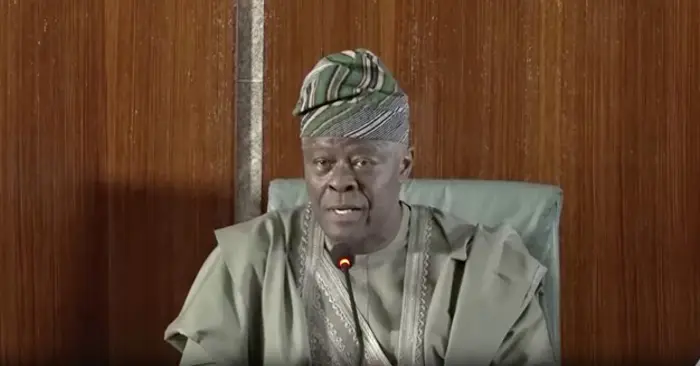When the African Democratic Congress (ADC) released a scathing statement on Sunday accusing the Tinubu administration of “fiscal vandalism,” many dismissed it as just another opposition party playing politics. But behind the partisan rhetoric lies a sobering truth: Nigeria is spiraling into a debt crisis with no brakes in sight, and the consequences could cripple generations to come.
In just two years, the Tinubu-led government has overseen a debt accumulation pace never before seen in Nigeria’s history. The figures are staggering. According to the ADC, while the Buhari administration borrowed an average of ₦4.7 trillion annually, already considered excessive, the Tinubu government has averaged nearly ₦50 trillion per year. That’s ten times more. And the results? Still no stable power, no improved hospitals, no competitive schools, and no structural transformation of the economy.
The government has justified its borrowing as a necessary sacrifice for economic reform. But if reform is the goal, where is the evidence of progress? Most Nigerians still struggle with soaring inflation, a weakened naira, mass unemployment, and dwindling purchasing power. Small businesses, once the engine of Nigeria’s informal economy, are being choked out by lack of credit and punishing taxes, while foreign investors are fleeing due to policy inconsistency and insecurity.
Even more troubling is the lack of transparency surrounding these loans. Nigerians do not know the terms, interest rates, or repayment schedules. Who are the lenders? What projects are being funded? Who monitors execution? The National Assembly, charged with oversight, has morphed into a rubber stamp, approving billions of dollars in external loans without the diligence such a sensitive fiscal decision demands.
The reality is this: Nigeria is no longer borrowing to build. It is borrowing to survive.
And survival borrowing is a dangerous trap. Already, over 60% of national income is spent servicing debt. The ripple effects are clear, more taxes on citizens, fewer social services, and growing national insecurity born out of desperation.
This is not a partisan issue. It is a national emergency.
Nigeria’s economic sovereignty is at risk. If this trajectory continues, we will not only be buried in debt, we will have no leverage, no independence, and no voice in shaping our own future. Our children will be forced to repay loans they neither incurred nor benefited from.
We therefore join the ADC, and indeed, all voices of reason, in calling for an immediate and full public audit of all loans acquired in the last 10 years, including under the current administration; a moratorium on new foreign borrowing until a transparent debt sustainability plan is approved by independent fiscal experts; a National Assembly hearing (broadcast live) on the current state of Nigeria’s debt, with ministries and lenders held accountable and a shift from debt-financed consumption to investment in productive sectors, especially power, agriculture, and value-added exports.
It is time for the Nigerian government to stop using loans to mask policy failure. Borrowing is not inherently bad, but when done recklessly and opaquely, it becomes a betrayal of the nation’s future.
The Tinubu administration must now choose: course correction or generational condemnation.






















